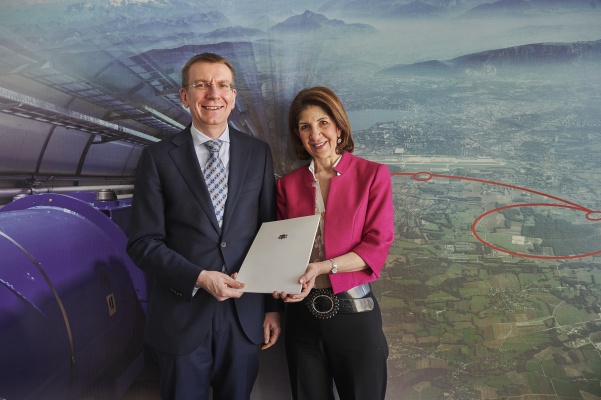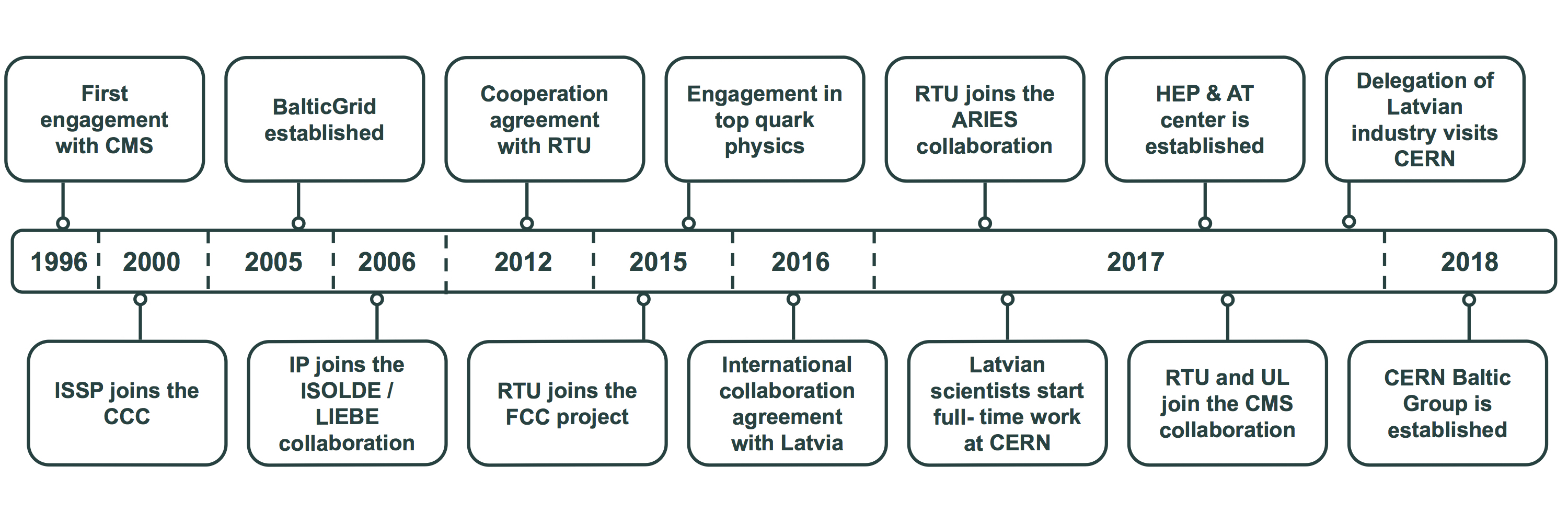
The Minister of Foreign Affairs of Latvia Edgars Rinkēvičs and Secretary of the CERN Council and the organisation’s Director-General Fabiola Gianotti at CERN, 24.02.2020.
Photo: CERN
Latvia's goal is to become an associated member state of CERN and, as such, strengthen the national high-energy particle physics community to become a full member of CERN at a later date. RTU and its representative at CERN, Professor Toms Torims have been directing Latvia to this goal since 2012, when RTU signed a cooperation agreement with CERN.
CERN representatives have expressed their willingness to facilitate the growth of Latvian particle physics community. “Latvia's participation in CERN is considered to be an important indicator of the quality and competitiveness of science and innovation, which creates new opportunities and promotes competitiveness of Latvian enterprises in the development of new high-value added products,” said Kārlis Šadurskis the Minister of Education and Science in Latvia, at the time.
On 24 February 2020, the Minister of Foreign Affairs of Latvia, Edgars Rinkēvičs, submitted a letter signed by the Latvian Minister of Education and Science, Ilga Šuplinska, applying for CERN Associate Membership, which comes into effect in 2021. More information.
Benefits of the CERN Associate Membership to Latvia
CERN is a unique project of scientific collaboration on a global scale. Apart from the well-known physics discoveries benefiting the advancement of fundamental science, there have been numerous technological breakthroughs and landmark engineering achievements that have emerged from this organisation.
Although difficult to quantify directly, these have undoubtedly provided great benefit not only to CERN and its member states but also to society as a whole. Such benefits, however, take some time to evolve, thus these gains must always be viewed in the medium-to-long term, instead of focusing purely on the immediate metrics, such as the instantaneous industrial return. The potential and overall benefits of Latvia’s accession to the status of an Associate Member state of CERN are in accordance with the goals of the national development plan of Latvia that are outlined in the Latvia’s application.
Additionally, it will contribute immensely to the development of the science and technology base and the research and innovation potential of Latvia at a national scale through the following:
Latvia has been involved in CERN activities for couple of decades already and becoming a member of this organization is just a logic step forward.
Latvia's Application Questionnaire
